 |
‘2011코리아푸드엑스포’에서 본 두 행사는 나의 이런 비판적인 태도를 더욱 공고하게 만드는 계기가 됐다. 한 행사는 한식의 세계화가 어떻게 자국민을 기쁘게 하는 도구로 쓰이는지를 보여주었고, 또 다른 행사는 정부가 한식의 세계화에 얼마나 무관심한지를 여실히 보여주었다. 우선 첫 번째 행사는 외국인들이 펼치는 단순한 요리 경연 대회였다. 경연의 주제는 두 외국인이 한 조가 되어 친구에게 소개해주고 싶은 한국 음식을 만드는 것이었다. 심사 항목에는 창의성과 맛이 포함되어 있었고, 다른 관련 공식 문서에도 ‘창의적이고 독창적인 요리법’을 높이 평가한다는 내용이 나와 있었다.
사실 이 요리경연대회는 심사위원단 구성에서부터 문제가 있었다. 요리 전문가들로 구성된 심사위원단 중 외국인은 단 두 명에 불과했고, 심사의 일부인 관중 평가에 참여한 사람들도 대부분이 한국 학생들이었다. 즉, 외국인이 좋아할 만한 음식을 만드는 요리경연대회의 평가가 순전히 한국인의 입맛과 한국인의 관점에서 이루어지고 있는 것이다.
이 경연대회가 진행되는 양상을 보면 문제는 더 심각해진다. 심사위원단과 일반 관중들의 시식이 따로 진행된 후 점수 집계를 거쳐 몇몇 요리들이 수상의 영예를 안았는데, 우연의 일치인지 이 날 상을 받은 대부분의 요리들이 그동안 한국 정부가 고집스럽게 홍보를 추진해 온 한식 요리들과 정확히 일치했다.
우승자가 발표되고 관중들이 경연장을 떠난 뒤 주위를 둘러보니 심사위원들이 손도 대지 않은 몇몇 요리들이 눈에 들어왔다. 심사 항목 중 하나가 ‘맛’임에도 불구하고 시식조차 안 된 자신의 요리를 발견한 참가자들도 있었다. 누군가가 정성을 다해 만든 요리를 맛조차 보지 않는 것은 정말 무례한 일이 아닐 수 없다. 결국 이 행사는 외국인들이 한식을 요리하는 장면을 얻기 위해 연출된 한 편의 홍보 쇼에 지나지 않았다.
두 번째 행사는 엑스포 기간 중 진행된 ‘아시아식품포럼’이다. 정부 관계자, 행사 운영진, 그리고 글로벌 기업들의 외국인 이사진들까지 참석한 이 포럼의 토론 의제 중 하나가 바로 한식의 세계화였다. 그러나 패널들이 토론을 시작할 때쯤에는 이미 모든 정부 관계자와 대부분의 행사 운영진들이 회의장을 떠난 뒤였다. 한식의 세계화를 논하는 이 포럼은 결국 외국인 이사진들과 학생들만이 참석한 채 진행됐다.
아마 정부 관계자들과 운영진들은 한식의 세계화에 관해선 더 들을 것도, 배울 것도 없다고 생각한 듯하다. 이것이 사실이라면 한식 홍보 캠페인이 지금처럼 이렇게 오만해진 것도 충분히 납득이 간다. 이 두 행사를 보면서 한 가지 확신하게 된 점은 한국의 한식 홍보 담당자들은 입으로만 한식의 세계화를 외치지 진정으로 바라고 있지는 않다는 사실이다.
(원본)
Not Serious about Globalization
I’m getting more and more convinced that the Korean government is not interested in Korean food globalization. It’s becoming more of an exercise to impress the domestic population, to impress superiors, and to impress people at social gatherings. It’s a farce used to pump up public pride without any real effort in taking it seriously.
Two events during Korea Food Expo 2011 helped increase my cynicism. One showed how Hansik globalization was an illusion to please the Korean public. The other showed how little the government cared about the task. The first was a simple cooking contest for foreigners. The theme was for teams of two foreigners to cook dishes to introduce Korean food to their friends. Among the judging criteria were creativity and taste. One of the official documents proclaimed that “Creative ‘original’ recipes” were welcome.
The judging itself was flawed from the beginning. It was to be done by a panel of professionals, of which only two were foreigners. It was also to be evaluated by the Korean audience, mostly students. So already we have a contest to make food for foreign tastes being judged almost completely by Korean tastebuds and Korean perspectives.
The execution of the contest itself was the real crime. Separate plates were made for the judges and for the public. In the end, some great dishes won. By coincidence, most of them were the very same dishes the government has been stubbornly promoting. After the winners were announced and people started leaving, we looked around and found that some of the dishes weren’t even touched by the judges.
Other contestants noticed that their dishes weren’t tasted, even though points were given for taste. It was disrespectful to have these teams put their hearts into cooking their dishes and not even taste them. And it was infuriating to see that the whole contest was a rigged publicity stunt to get pictures of foreigners cooking Korean food.
The other event was an international forum on food in Asia. Government officials, Korean executives, and even foreign executives of international corporations attended the forum. Part of the agenda was a panel discussion on Korean food globalization. By the time the panel started, all the government officials and most of the Korean executives had left the conference. Only foreign executives and students attended the discussion on Hansik globalization.
Maybe these officials and executives thought that they already knew all that they needed to know. If that’s true then you and I can see how arrogant this campaign has become. Yet with these two events, I have become more convinced that they are only interested in Korean food globalization with their lips and not their hearts.
조 맥퍼슨(Joe
McPherson)은?
조 맥퍼슨(Joe McPherson)은 한국음식을 주제로 한 영문 블로그
‘젠김치(www,zenkimchi.com)’을 운영 중인 외국인 블로거다. 미국인으로 지난해 10월 한국인 아내와 결혼했으며, 곱창과
돼지껍데기를 즐긴다. 2004년부터 운영하기 시작한 ‘젠김치’는 하루 최고 1만8000번의 페이지뷰를 기록하는 파워블로그. 미국, 호주 등
영어권 국가뿐 아니라 프랑스, 독일, 심지어 아프리카 국가에서도 이 블로그를 찾고 있다.
 이 누리집은 대한민국 공식 전자정부 누리집입니다.
이 누리집은 대한민국 공식 전자정부 누리집입니다.






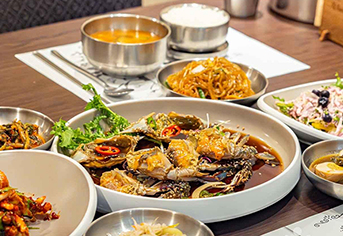














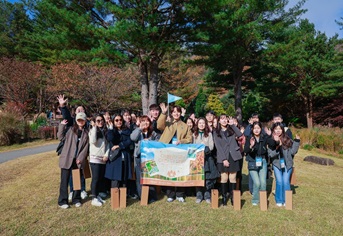
![[윤석열 대통령 뉴스위크 인터뷰] “윤 대통령의 가장 큰 문제는 북한이 아니다”](https://www.korea.kr/newsWeb/resources/attaches/2024.11/12/8984513668bfcb5351ed652346d39d9f.jpg)



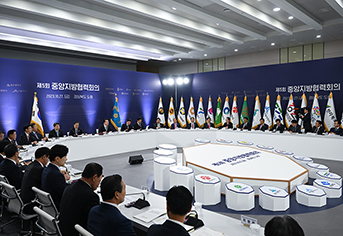


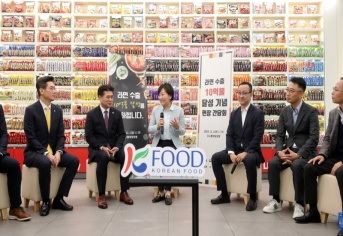
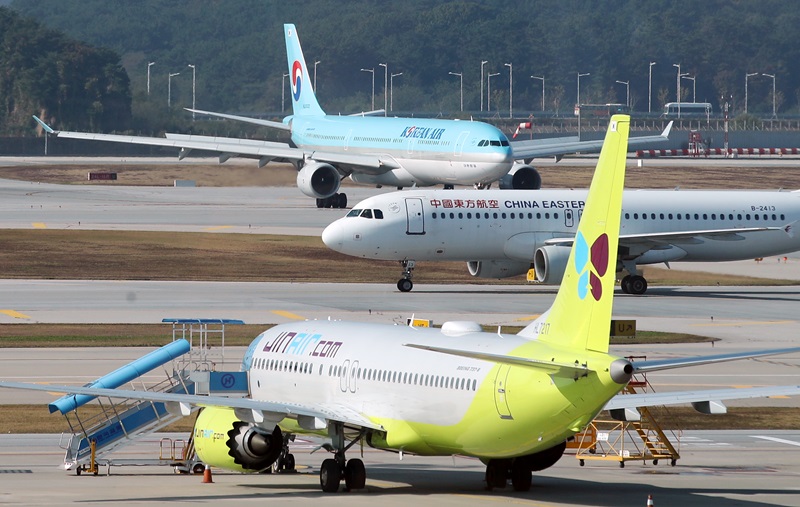


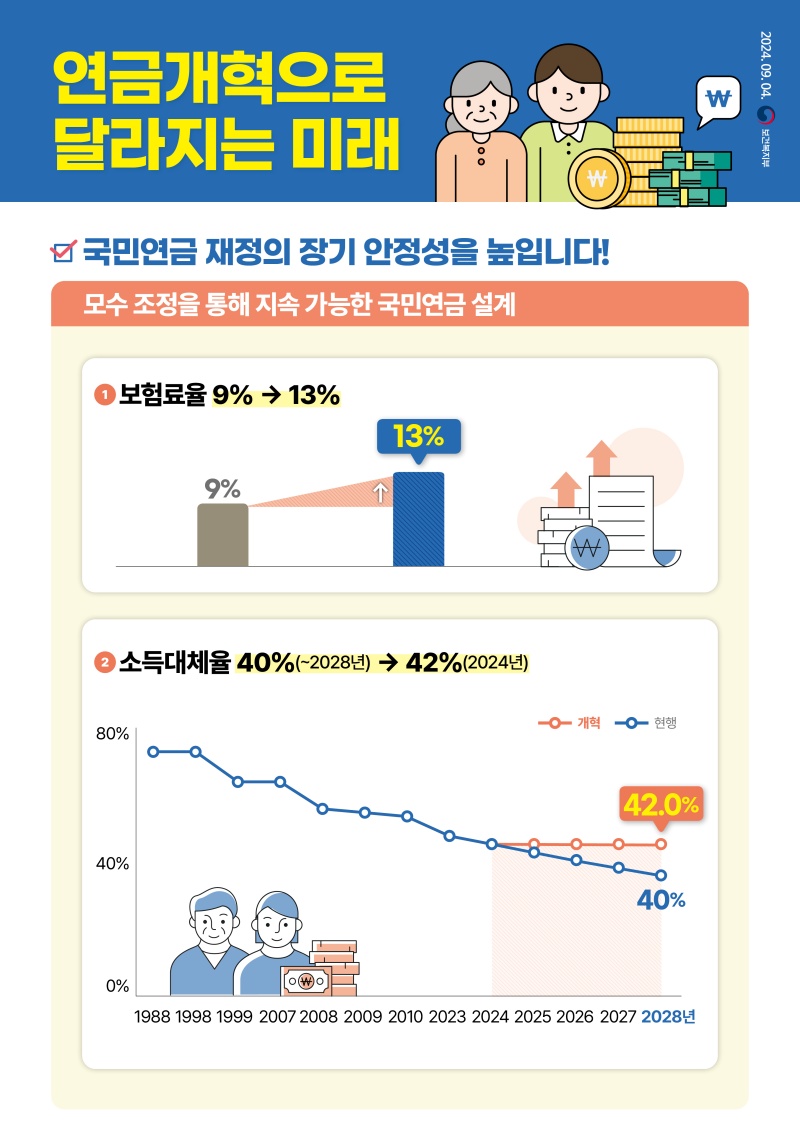
![[’24.11.4.~11.8. 국민 곁으로] 국민을 섬기는 마음](https://www.korea.kr/newsWeb/resources/attaches/2024.11/11/217583dc5c605e43ef13b39ab4cbec0b.jpg)
